| |

Traditions, folklore, history and more. If it's Irish, it's here. Or will be!
"People will not look forward to posterity who never look backward to their ancestors."
-Edmund Burke

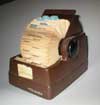


Quotes
Library: Books, Movies, Music
Prints & Photos
Poetry
Jokes


Shops Ireland
Bunús na Gaeilge
(Basic Irish)
Circle of Prayer
Blessings
Did You Know?
Himself/Herself
Write to Us
Readers Write..
Links/Link to Us
Advertise with us
Awards & Testimonials
Submissions Guide

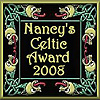
|
|
|
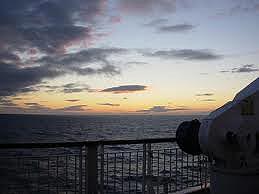 One Moment in Time One Moment in Time
by Joseph O'Connor
INTRO: Joseph O'Connor recalls an especially memorable Christmastime homecoming with his wife and firstborn child.
I suspect that, like many parents, my most memorable Christmas was the one following the birth of our first child. We had been living in London for some years and that's where the lad was born. But when he was a few months old we returned to live in Dublin, arriving at the start of Christmas week, 2000.
The plan had been for my wife and the baby to fly, and I would take our rusting, decrepit car on the ferry. But in all the excitement and exhausted happiness and clutter of new parenthood, we left it too late to book a flight and there wasn't a seat to be had.
Thus I remember driving across England in that cold, late December, the last of the 20th Century, the last of a millennium, through fog and sleet and ice-glazed scenery, the wipers relentlessly fighting the grists of hail, and the crackle of the banjaxed radio.
The car was older than our relationship, indeed practically on the scrap-heap, and at some point someone had spilled a pint of milk on the floor, which made the interior smell like Satan's halitosis. But you couldn't open the window -literally couldn't, in the case of one of the windows - because being face-whipped by a hailstorm as you're driving past Stoke isn't anyone's idea of air-conditioning. I had actually tried to sell the jalopy in London as a prelude to re-immigration, telling the dealer it had been valued at two-and-a-half grand. He took it out for a brief test-drive before handing me back the keys. "Fackin' key-ring's worf more than the car," he said.
My wife was in the back, with a toaster on her lap, a portable telly beneath her feet and her pockets full of spoons and forks. In my memory, she was wearing almost every exterior garment she possessed, (a) because it was so cold, and (b) because we couldn't afford another (suit) case.
I had entrusted her with the really important things in my life (ie, my Patti Smith and Clash records), and in my memory these were balanced on top of her head, in the manner of a Bedouin woman carrying a water-jar from an oasis, but in fact she was holding them in her frostbitten fingers, whose tips were turning a fetching shade of blue.
Under many layers of clothing I had on my favourite T-shirt, an item purchased in revolutionary Nicaragua in 1985, the T-shirt having lasted longer than the revolution.
Oh yeah - the baby was there too, strapped into a safety seat, but a safety seat whose workings neither of us had full confidence we understood because sadly we didn't have a degree in advanced mechanical engineering. While into the crock's boot had been packed the remainder of our worldly goods, total value about nine-quid-fifty.
I was full of mixed feelings about coming back to live in Ireland. Some of the happiest years of my life had been spent in London. I had met my wife there, had many friends and colleagues there, and had always felt strangely at home there, as I think many Irish people do.
So why were we going to Dublin? I wasn't quite sure. As our car sputtered across England, my wife started telling me that it was all my idea, whereas I, countering brilliantly, said it had been all her idea. At some point we had an argument and I didn't speak to her for an hour. Well, I didn't like to interrupt her.
As anyone who has ever undertaken that drive knows well, it's plain sailing through the English midlands, where things like motorways and electric lighting have been heard of, but when you cross the border in Wales, the roads start to narrow and snake, and what looks on a map as though it might take you 10 minutes can end up taking you 40 years. But rural Wales is a scenically attractive place, if you don't mind hearing Duelling Banjos strike up in your head now and again. I was coughing and spluttering as a result of a bad cold, but it did make my attempts to pronounce those Welsh place-names beginning with two ells as enjoyable as they were memorably phlegmy.
We made it to Holyhead just as they closed the barriers. We were literally the last car allowed to board the ship - and if we hadn't had a baby with us I'm not sure the security guards would have taken pity. I had to do an awful lot of bleating and looking piteous and vulnerable, and as this was before Bertie Ahern's famous interview with Bryan Dobson, it was hard to think of someone whose Oliver Twist-demeanour and facial expressions it might be useful to imitate.
It was the midnight sailing, and we rocked across the Irish Sea. It was a dreadful night, the worst crossing I've ever known. Through all of it, the little one slept soundly in a carry-cot on the floor of the lounge. Around us ranted the mobs of beer-fuelled emigres, roaring, carousing, slapping one another on the back, singing carols with obscene or facetious new lyrics, and trying to garrotte one another with lengths of tinsel.
It was like being at a re-enactment of a 19th-century Punch caricature of Irish people enjoying themselves at a funeral. There were rebel-yells and mawkish choruses, screechings, cursings, birdie-songs and boogieing and brandying. That shining pearl of Shane MacGowan's genius, Fairytale of New York, was sung so oft and so badly that I came to hate it with a passion. I don't exaggerate when I tell you that to this very day, I immediately switch off the radio when it comes on.
Every time a massive wave hit the ship, we seemed to rise 100ft in the air before crashing back down again with the implacable viciousness of a hanging judge's gavel. The gnash of glasses breaking. The moans of en-masse vomming. I couldn't believe the baby was so tolerant of the punk rock ambience, and if I had never loved him before, which I had, very much, I think I bonded with him that night in some fundamental way.
Here was a kid who could sleep through The Fields of Athenry. Our Dozol bill would always be low.
By six in the morning the party had ended, mainly because most of the celebrants were by now unconscious. Closer to dawn, the baby was still sleeping, comatose as a student, and his mum asked me to get her a bottle of water. After I'd done that, I remember asking her if she wanted to go out and get some air on the deck. She didn't really want to but she suggested I step out myself if I liked.
Everything was calm. It was a cold, clear morning. I don't think I had ever seen a sky that had so many stars, and certainly I never have since. You felt you could touch them, stir them around. There was an unearthliness about the beauty and the stillness.
I walked the decks for a while. People were gathered here and there. And as I rounded the stern of the ship, there was an elderly couple who were sharing a flask of tea and listening to classical music on a radio. I don't know if I can convey to you the strange beauty of that scene: being that far out at sea, in the dark and the cold, with haunting music being played on a radio.
I stood near them for a while. I think I was smoking. And what happened next, I'll never forget.
A piece of music they recognised came on. And I recognised it too. They turned it up a little and poured themselves another cup of tea. It was an extract from Handel's Messiah. You probably know it - you'll have heard it now and again. But you've likely never heard it in the circumstances I describe. The choir began to sing. And the old couple hummed along. And I found I could hardly move.
For unto us,
A child is born.
Unto us,
A son is given.
Now, I should tell you that I am not the kind of feller who easily cries. But when I heard those simple, beautiful words, it was hard to remember that. I stood in the dark and tried hard not to weep. Dawn began to come on. The sky turned red and gold.
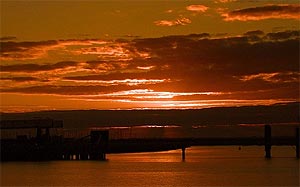 The ship was by now approaching Dun Laoghaire, the town where I grew up. I could actually see the pier where my pals and I used to hang out on summer evenings, the stretch of coastline at Sandycove, near where I kissed and was kissed for the first time, the steeples and the shopping centre, and Killiney Hill in the distance, its obelisk silhouetted against an impossibly scarlet dawn. The ship was by now approaching Dun Laoghaire, the town where I grew up. I could actually see the pier where my pals and I used to hang out on summer evenings, the stretch of coastline at Sandycove, near where I kissed and was kissed for the first time, the steeples and the shopping centre, and Killiney Hill in the distance, its obelisk silhouetted against an impossibly scarlet dawn.
I had a son. I was a father. I felt flooded with joy, as though everything in my life finally had meaning.
I was coming home with my wife and our child. I couldn't believe the happiness. I felt we could face absolutely anything; we'd face it together. It was like a Christmas present from fate; that's how I felt about it anyway. But in another way it was nothing at all, just a moment in a life. It was a radio on a ship a few days before Christmas, among drunks and dreamers, in the darkness. "A broken hallelujah," Leonard Cohen might have said. But maybe that's the best kind of all.
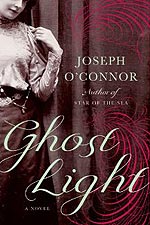 ED. NOTE. This story was published with the kind permission of the author who has a new book out entitled 'Ghost Light.' To learn more about Mr.O'Connor and the book, please visit his web site: ED. NOTE. This story was published with the kind permission of the author who has a new book out entitled 'Ghost Light.' To learn more about Mr.O'Connor and the book, please visit his web site:
Joseph O'Connor
Ghost Light is available at Amazon UK
It will be released in the US in February 2011 and is available for pre-order at Amazon US
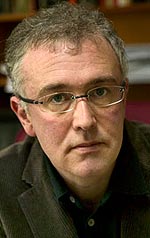 We are looking forward to reviewing this latest work. Meanwhile, we had the great pleasure of interviewing Joseph when he was in town promoting his novel 'Star of the Sea'. If you'd like to read about our meeting, please click Joseph O'Connor Interview. We are looking forward to reviewing this latest work. Meanwhile, we had the great pleasure of interviewing Joseph when he was in town promoting his novel 'Star of the Sea'. If you'd like to read about our meeting, please click Joseph O'Connor Interview.
and if you'd like to read our review, please click Star of the Sea.
Photo Credits:
View from the ferry at sunrise on the Irish Sea by Elaine Cartwright
Dawn over Dun Laoghaire by Ken Hefferman
For more of our Holiday Stories click on the following links.
Advent/Christmas Holidays
Time at this Point in the Year
An Advent Memory
Yes, Kelsey and Maddie, there is a Santa Claus
Waiting for St. Nicholas
Christmas - Preparing the Puddings
Christmas - Food for the Feast
An Irish Christmas - Then & Now
An Irish Christmas - The Day Before
Memories of Christmas Eve Past
An Irish Christmas - Ding Dong Merrily On High
Seasons Greetings in Irish
St. Stephen's Day to New Year's Eve
New Year's Day to Epiphany
Many Years Ago by John B. Keane
Rowing to Christmas Mass
Burying the Baby Jesus
|
|
Fri, Sep 27, 2024
 The Galway Hooker The Galway Hooker
This unique vessel, with its distinctive curved lines and bright red sails, originated in the village of Claddagh. During the 19th century, hookers supported a significant fishing industry and also carried goods, livestock and fuel. Seán Rainey is remembered for building the last of the original boats, the Truelight, for Martin Oliver who was to become the last king of the Claddagh; as king, he was entitled to white sails on his boat. Since the mid seventies, many of the old sailing craft which were on the verge of extinction have been lovingly restored and new ones have been built. During the summer months they can be seen at festivals such a Cruinniú na mBád - the Gathering of the Boats - in Kinvara.
Click for More Culture Corner.
|
|




 The Galway Hooker
The Galway Hooker